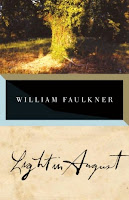I’ve discovered I love nineteenth century adventure stories.
For the “Back to the Classics Challenge” sponsored by the
blog Sarah Reads Too Much, I read The Three Musketeers (see review) in
January and now Robert Louis Stevenson’s Kidnapped.
When published in 1886, Kidnapped
was already historical fiction based in part on a real life struggle between England’s
King George (Could he get along with anyone?) and the Scottish Highlanders. It
centers on a 1752 event known as the Appin Murder where the king’s agent, Colin
Roy Campbell, was murdered by a sniper. Alan Breck Stewart, a key character in Kidnapped, was accused and convicted of
this murder in absentia. The event
was also featured in Sir Walter Scott’s Rob
Roy.
In Stevenson’s novel, seventeen-year-old David Balfour
(fictional) is kidnapped and on his way to the American plantations as a slave
(many are unaware of colonial America’s white slavery) when the ship picks up a
stranded Alan Stewart. The two become allies against a sinister captain and
crew when their own ship hits a reef and sinks. The remainder of the book is a
fictionalized version of the intrigue surrounding the Appin Murder and its aftermath.
Like The Three
Musketeers, the book is crammed with compelling characters and fast-paced
action that kept me glued to the pages. I read it on a weekend car trip
and finished it within hours of arriving home. The dialogue was often written
in a Scottish Highland dialect that I found fun to read and included many local
and likely archaic words from that area. The definition of some could not be
discerned from the content, but I only looked up a handful to understand the
plotline.
I enjoyed reading Treasure
Island several years ago especially since we live near Savannah, Georgia,
where some of that story is based. But I must say Kidnapped was even better. It is a great book and a fun read.

